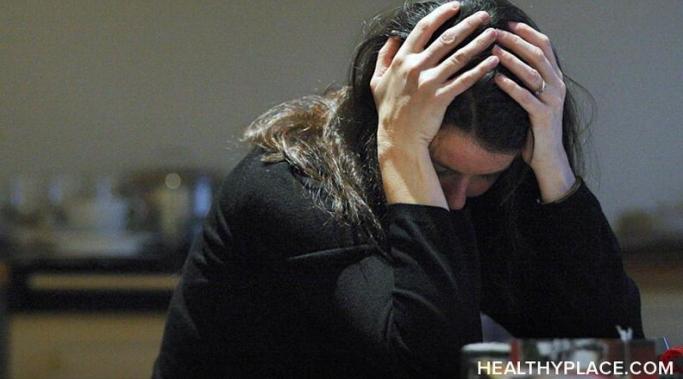Making the decision to take psychiatric medication to treat posttraumatic stress disorder (PTSD) can be difficult. Even though PTSD is most commonly (and successfully) treated with a combination of therapy and medication, some of us are reluctant to take psychiatric medication as part of our recovery. There are many valid reasons for and against using medication as treatment for PTSD, and careful consideration and education are needed to weed through them. Talking to your psychiatrist openly and honestly is important in making the decision whether or not to use psychiatric medications as part of your PTSD recovery.
PTSD Treatments
I have received enormous benefit to my PTSD recovery from the use of inner child exercises. Inner child exercises help heal the wounded child who lived for so many years within my body. It was that damaged child who suffered the abuse that led to my posttraumatic stress disorder (PTSD).
When I was first presented the concept of inner child work, I thought it sounded silly. But in a time of great desperation, I tried it, with the most remarkable results. My PTSD recovery is greatly benefitted by using inner child exercises. Here's how they work.
Follow-through and healing after posttraumatic stress disorder (PTSD) symptoms arrive is tough as illustrated by a client who recently told me about his plans to begin learning transcendental meditation to reduce his anxiety and he blurted in exasperation, "I know what I have to do to heal! The problem is that even though I know what to do I can't seem to get myself to do it."
This is a common refrain in recovery (and one I often said myself). Knowing what to do but not following through on doing it is one of the biggest problems in how to heal after PTSD symptoms settle in.
Being a self-empowered survivor means taking responsibility for your posttraumatic stress disorder (PTSD) recovery plan. Healing will not progress simply because you think it should. It will not move forward just because you want to reach the end (don't we all wish that it would?!). It will not occur just because you present yourself in a professional’s office. Unfortunately, posttraumatic stress disorder recovery only happens when you actually engage in a PTSD recovery program.
Posttraumatic stress disorder (PTSD) support can be hard to come by. Many people -- especially those who haven't experienced trauma -- find it hard to relate to survivors and even harder to be supportive. While PTSD symptoms can make you feel like a freak (and look like one to those unwilling to learn how trauma changes your brain and creates PTSD symptoms) the truth is, there absolutely are people who understand and are even willing to support your PTSD coping and healing strategies.
How to treat PTSD by yourself is a tough process to discover. In fact, as someone who struggled with posttraumatic stress disorder (PTSD) for over 25 years, I can tell you from personal experience that you won't discover how to treat PTSD by yourself and reach 100% success. You will need the insight and training of professionals who have deep knowledge in processes that can ease the pain, soothe the memories, and release the fear. That having been said, there are many things you can do on your own to supplement the work you do with a professional, or to tide you over until you find the support you need.
I wasn't actually diagnosed with posttraumatic stress disorder (PTSD) when I started therapy. So years into my first therapeutic relationship I realized we were going nowhere -- fast. I'd gotten into therapy to learn how to live as a chronic patient, but what we were doing was talking and talking and talking about my trauma and the enormous fears I carried. I was mentally and physically deteriorating at a frightening speed. I needed to know how to find a good PTSD therapist.
For anyone who experiences dissociation as part of the posttraumatic stress disorder (PTSD), (and this includes me during my PTSD years) you know how frustrating, embarrassing and uncontrollable it can be. Reducing dissociation in PTSD is something we all want.
Recently, I’ve spoken to two survivors who are just discovering (after years of invested time and work) that their therapists are not equipped to work with posttraumatic stress disorder (PTSD). This breaks my heart to hear. You’re struggling enough to cope through the day without being stuck in a treatment approach that can’t help you reach your recovery goals as quickly as possible. But the two stories I recently heard don’t surprise me. In fact, it was my story too.
Healing is all about being able to shift out of survival mode, complete the trauma response, consolidate memories and move into a life focused on things other than threat and danger, safety and control. If you’re in a situation in which trauma maintains a high level of threat, either ongoing or sporadically (i.e., an abusive relationship, a war zone), it’s going to be very tough to heal posttraumatic stress disorder (PTSD). In that case, it can be beneficial to switch to a different strategy: Bulking up your trauma coping skills.









